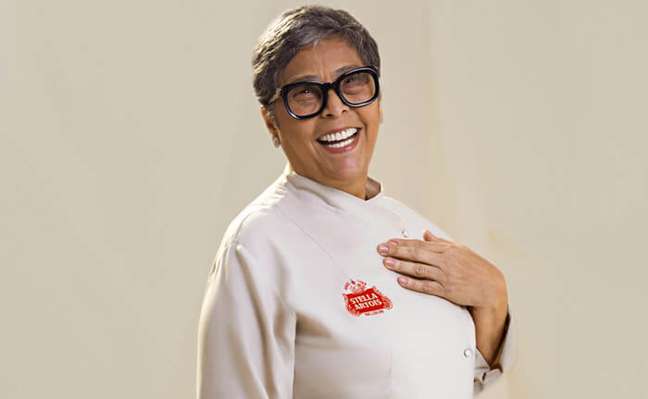5 hardships that women face in the labor market
Even in gastronomy, gender inequality affects women. Although women dominate the domestic kitchens of 96% of homes in Brazil (PNAD, 2019), only 7% of them are in charge of the most renowned restaurants in the country (Chefs Pencil, 2022).
The national investigation together at the tablemade by Stella Artois and Ipsos, it shows that there are several challenges that women have to face in the area in the kitchens of restaurants, bars, bakeries and other businesses in the segment.

ability questioned
35% of women agree that their ability to cook is questioned just because they are women.
“I was ignored a lot because I was a woman and one situation that really bothered me was a day when a customer didn’t believe that the dish served at a dinner was created and executed by me, making it clear that it did not expect you that a person with my history has the ability. Everything was said in an apparently kind way, but the prejudice was there,” recalls Kátia Barbosa, who began her career in gastronomy as a kitchen assistant and waitress at Aconchego Carioca, the restaurant where she is currently chef, in Rio de Janeiro.
Katita, as her friends affectionately call her, also leads the kitchen at the Kalango bar and is also a judge on the Globo Mestre do Sabor TV show.
Entrepreneurship is more expensive for them
Almost 1/3 of women agree that going into gastronomy is more expensive for them than for men. For Ieda de Matos, chef and owner of Casa de Ieda, who has been working professionally in gastronomy for 10 years, the financial barrier has always been impressive.
“When it comes to the economy, I believe that the difficulty I have had has always been linked to my socio-economic condition, first of all, since in the moments in which I could demonstrate my income I had access to the credit I needed. However, gender was the condition that prevented me from having access to decent and equal jobs and wages with other male colleagues in the profession, with the same position” reveals the chef of Chapada Diamantina, now based in São Paulo.
The search for professionalism
Nearly half of the women surveyed by Stella Artois and Ipsos are looking for some kind of professionalization. They want to gain more knowledge but run into a lack of time and money.
“In my opinion, the main challenge for gender equality is for us to be able to empower and train these women more and more. A career for a man is much easier – he has much more opportunities than a woman. A man won’t take a break from his career because of a pregnancy, or even to take care of the family, a younger brother… this gives men more time to train and invest in their careers,” says the northern chef Amanda Vasconcelos, who brings Acre food condiments and ingredients to the Casa Tucupi restaurant, in São Paulo.
Dishes stolen from the kitchen
35% agree that many women have had their creations and the authorship of the dishes stolen from the kitchen. According to Bruna Martins, chef from Minas Gerais, visibility and opportunity are the answers to end gender inequality in the sector.
“In the patriarchal structure, the kitchen was and is a place of social isolation, of obligation and of obligatory female work. And even in a machismo scenario, it was possible to support a Brazilian cuisine rich in origins, affections and techniques. In the professional scenario, male chefs take center stage, receive media ‘laurels’ and awards and, with that, more money. And that’s because the cuisine they sell has its foundations built on compulsory, often painful, female labor.”
The chef opened the Birosca restaurant at the age of just 22 and, today, celebrates almost a decade of success with his Belo Horizonte venture.

gender discrimination
29% of gastronomy professionals have suffered or witnessed gender discrimination or thought about changing their profession due to lack of opportunities. They are the majority only in the lowest positions (cashier, janitor, kitchen assistant, receptionist and housekeeping assistant), while men lead in the positions of greater visibility (owners, managers, cooks and bartenders).
Michele Crispim, a chef from Santa Catarina who gained national prominence with her participation in MasterChef, faces a double prejudice for being a black woman.
“I feel stereotyped all the time and my life has been about breaking barriers, going in and being and staying in places that are supposedly ‘not for me’. I always had the feeling that I needed to be better, stronger and show more of my ability to be recognized. Yet, time and time again I have been discredited and discouraged from following. Luckily for me, giving up is not an option.
🇧🇷The best content in your email for free. Choose your favorite Terra newsletter. Click here!
Source: Terra
Benjamin Smith is a fashion journalist and author at Gossipify, known for his coverage of the latest fashion trends and industry insights. He writes about clothing, shoes, accessories, and runway shows, providing in-depth analysis and unique perspectives. He’s respected for his ability to spot emerging designers and trends, and for providing practical fashion advice to readers.








